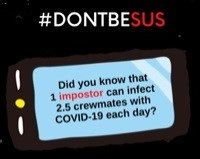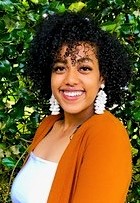Students from Dr. Robin Fleming and Dr. Jody Early’s courses at the University of Washington Bothell worked to stop the spread of COVID-19 by creating safety messages tailored to young adults. It is an audience that the Centers for Disease Control and Prevention and others have trouble reaching.
Emily Oomen — an alumna and current COVID-19 coordinator for the Snohomish Health District wanted to set up a social media challenge to complement the Mask Up Washington campaign — and a partnership between SHD and UW Bothell was formed.

Oomen and Heather Thomas, SHD’s public and government affairs manager, worked with the students to develop the social media messages.
“I was confident the students would provide valuable insight and come up with effective campaign ideas for reaching young adults, who are the group most likely to spread the virus,” Oomen said.
The 10%
Coached by Nancy Lee, a teaching associate at the UW in Seattle and a professional communication strategist, the students learned about social marketing and how to design effective messages that influence positive behavior change.
“If there has ever been a ‘wicked problem’ that social marketing was ‘born for,’ COVID-19 is it,” Lee said. “Why? Because social marketing is a proven discipline for influencing behavior change for social good.”
Reducing the spread of COVID-19 requires clear, specific behaviors: wear a mask, social distance, avoid crowds and sanitize hands.
“COVID-19 has shown us the need to train emerging public-health professionals in effective communication skills,” said Early, an associate professor in the School of Nursing & Health Studies said. “Health mandates and policies play an important role in prevention and pandemic response, but understanding human behavior and factors that influence it are critical, too.”
The primary objective of the students’ social media challenge was to reach young adults who aren’t following the guidelines and mandates put in place for COVID-19 safety. “We tune out 90% of information spewed at us,” said Fleming, an assistant teaching professor in the SNHS said. “I wanted my students to figure out how they could create something in the 10% that really grabs attention.”
#DontBeSus

Fourth-year student Annie Ngo and third-year student Sahra Salah earned themselves a place in the coveted 10% with their infographic poster that read, “#Don’tBeSus,” which was inspired by the increasingly popular game, Among Us.
Among Us is a multiplayer game that designates players as either crewmates or imposters. The imposters look like the crewmates but their role is to kill as many characters as possible without being detected.
Salah came up with the concept. “It’s the ‘it game’ in quarantine — we had to do it,” she said.
“It translated so well,” Ngo added. “The game is about stopping a dangerous and deadly imposter. We don’t know who has COVID-19 and who doesn’t. Many people are asymptomatic. ‘Don’t be the imposter that spreads the virus.’”
Salah and Ngo’s poster had 71 likes and 16 shares on Facebook, which was highly unusual for a public health announcement, Fleming said. One of the comments on the post read, “Absolutely brilliant! It’s so awesome, I’m sharing this.”
Connected and apart

Another success story from the campaign came from fourth-year student Sesait Tekle, who created a video with multicultural perspectives on the importance of wearing masks. While that message is commonly expressed, Tekle managed to move beyond what has already been done and translated the phrase into more than a dozen languages.
“I really wanted to focus on the unity aspect of community. The pandemic has shown us that it’s possible to stay connected even when apart,” Tekle said. “We have so many different cultures and languages within Washington state, I wanted to reach as many people as possible and remind viewers we are all in this together.”
Tekle believes the campaign was successful and said her family and friends across the country were sharing the video she made on their social media accounts.
“Even though the project was for the Snohomish Health District, it moved far beyond that,” she said.
Future focused
“The information I learned from Nancy while creating the campaign was so useful,” Tekle said, “I know I will apply those tools in my future career.”
For her part, Fleming said she was so proud of the students for being able to rise to the challenge, do the hard work and create this incredible campaign.
“I think this work saved lives.”



